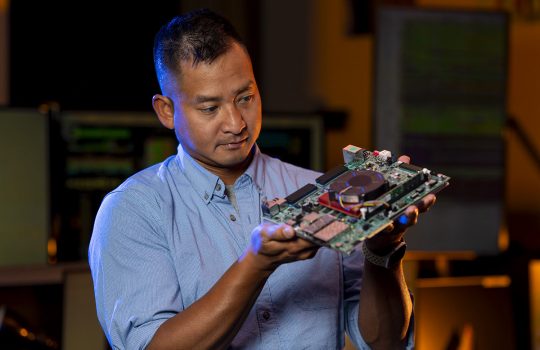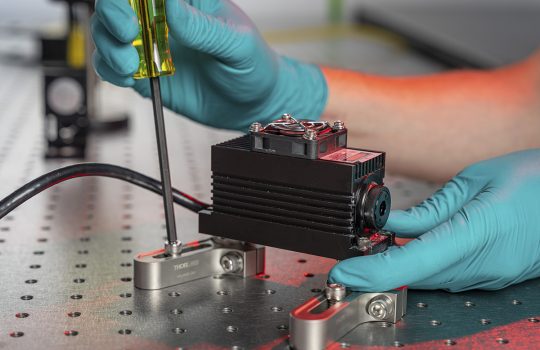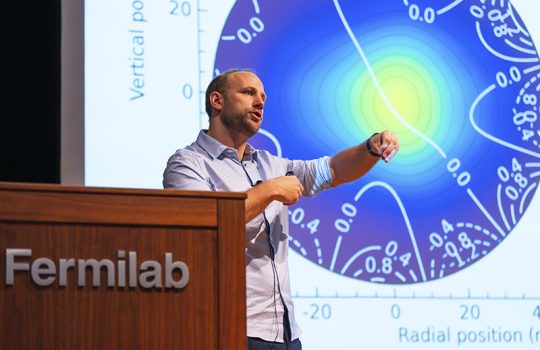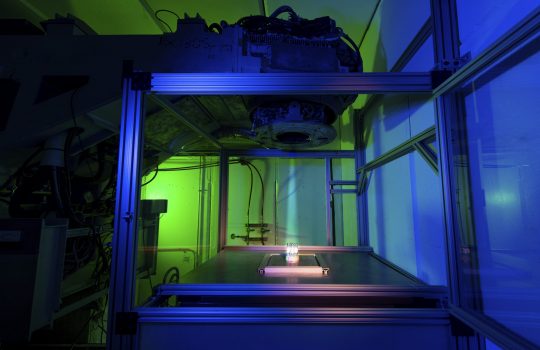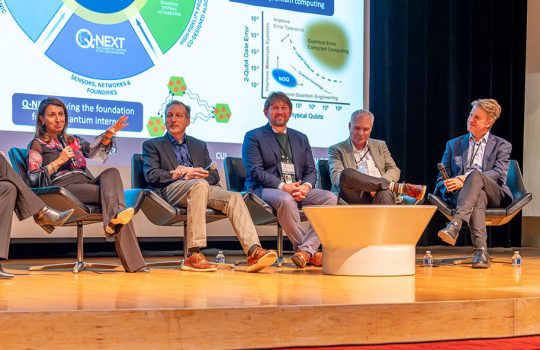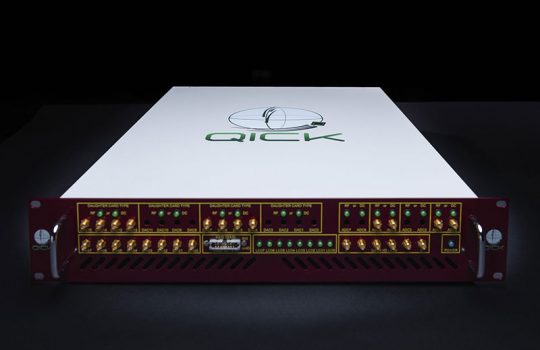1 - 10 of 46 results
Fermilab researchers supercharge neural networks, boosting potential of AI to revolutionize particle physics
Fermilab researchers have provided expertise and leadership in developing an open-source framework that enables the design of hardware capable of making split-second decisions. These advances aim to prioritize the enormous volumes of data produced by some of humanity’s most ambitious physics experiments.
US scientists complete laser lab for world’s largest vertical atom interferometer
Interesting Engineering, January 8, 2026
A state-of-the-art experiment at Fermilab is one step closer to collecting experimental data with the completion of a laser laboratory that houses its advanced laser systems
Fermilab completes laser lab construction for world’s largest vertical atom interferometer
Construction of a laser laboratory that will house state-of-the-art lasers necessary to run the experiment’s 100-meter atom interferometer is complete. This is an important step in building a quantum sensing device capable of seeing tiniest of signals emanating from the farthest reaches of the universe to discover new physics phenomena.
Fermilab’s accomplishments highlight discovery and innovation in 2025
- AI
- dark energy
- emerging technologies
- LBNF/DUNE
- LHC AUP
- MAGIS-100
- Magnes
- MicroBooNE
- Mu2e
- Muon g-2
- neutrino
- NOvA
- PIP-II
- QICK
- quantum
- SQMS
- U.S. CMS
Throughout this year, Fermilab’s dedicated scientists, engineers, technicians and operations staff came together to drive discoveries, advance American innovation and prepare the lab for a bright future.
Fermilab and Proficio launch water treatment system to combat PFAS
Innovation News Network, Dec. 10, 2025
A major step forward in the fight against persistent water pollution is underway in Illinois, where a national laboratory and a local engineering firm have joined forces to develop a next-generation water treatment system that eliminates harmful PFAS chemicals.
DOE partners with Fermilab and Qblox to scale U.S. Quantum Control Technology
Quantum Insider, Nov. 19, 2025
Fermilab teams up with Proficio to develop water treatment system targeting PFAS
Fermilab and a Chicagoland firm Proficio Consultancy are teaming up to develop a specialized water treatment system that uses beams of electrons to destroy harmful chemicals in water.
Fermilab celebrates new era of quantum innovation with ‘Exploring the Quantum Universe’
Fermilab is hosting a national symposium that brings together experts from across the quantum information science community. The event comes as the United States expands its leadership in quantum technology and underscores Fermilab’s increasing emphasis on QIS research.
Energy Department announces partnership with Fermilab and Qblox to manufacture foundational quantum control platform for U.S. research and innovation
The U.S. Department of Energy (DOE) today announced a partnership between Fermi National Accelerator Laboratory and Qblox, under which Qblox will coordinate manufacturing, distribution and support for the Quantum Instrumentation Control Kit (QICK) to advance U.S. quantum research and workforce development.

